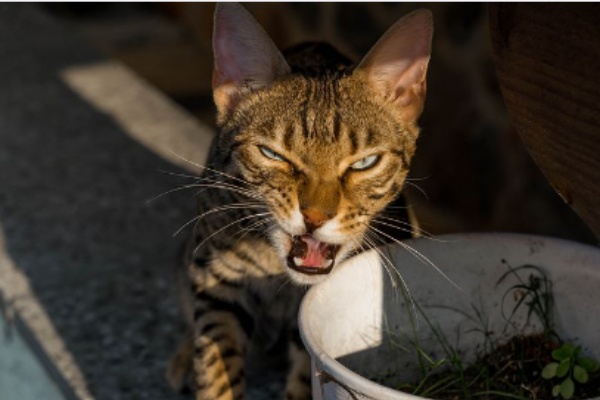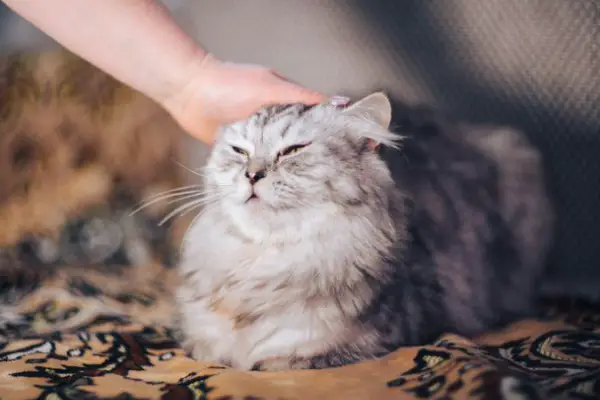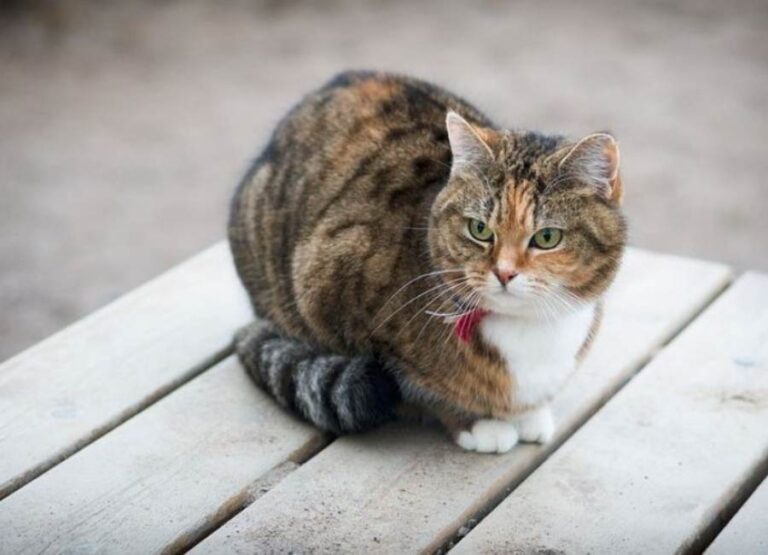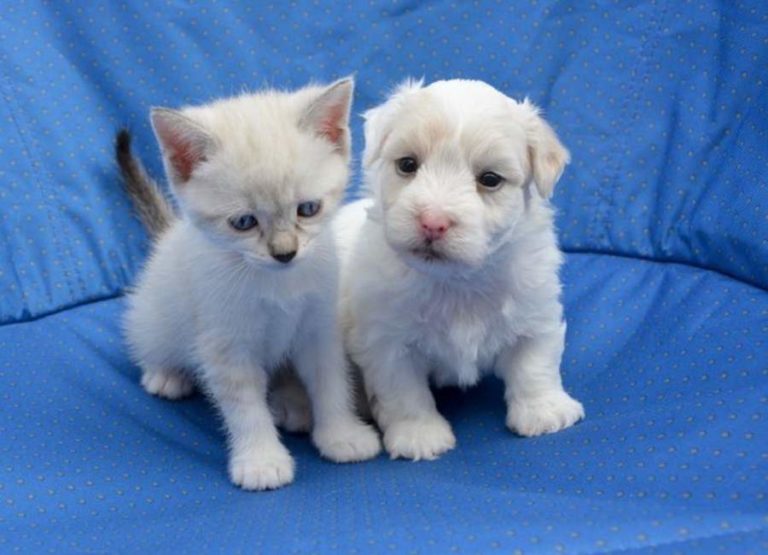9 Common Reasons Why Bengal Cats Bite & Tips

There are different reasons why Bengal cats bite which we will be discussing all through this post.
People see Bengal cats as an aggressive breed of cat, while that may not be totally wrong it all depends on the individual cat’s personality.
This aggression is what leads to biting, however they may still bite for reasons that have nothing to do with aggression which is what we will outline.
Why Do Bengal Cats Bite
Bengal cats may bite for a variety of reasons including when they feel threatened, out of fear, poor socialization, depressed, irritated, frustrated, or in need of attention.
Biting in Bengal cats may be treated by finding the main reason for the biting behavior.
They may bite out of fear or as a result of separation anxiety.
Reasons Why Bengal Cats Bite
Here are some possible causes of your Bengal cat’s biting:
1. To defend themselves
Several cat species have an innate survival instinct which means they are more likely to bite if they feel threatened and Bengal cats are one of those cats.
Biting might be a reaction to the perceived threat, a reflex such as acute stress response or hyperarousal would develop within the cat’s body.
This is to say that most times if your Bengal cat is biting you it can be because the cat is threatened by your or other family members’ actions.
In these cases, it’s critical that you stand back and examine which of their activities led their Bengal cat to become afraid.
If an owner wants to avoid being bitten again, they must be conscious of their own or their family members’ actions and stop repeating them, while figuring out the cause of the bite.
2. To get attention
This form of bite is not hurting or hard, Bengal cats use such low bites to get their owner’s attention.
One of the most common reasons for your Bengal cat biting you slowly is that they are seeking attention.
Bengal cats are unable to communicate, thus they may bite your hand or leg to gain your attention.
While biting an owner might be seen as a request for attention,
It usually results in a bad exchange with the owner, who then refuses to give them the attention they seek!
3. Biting due to pains or illness
Bengal cats become overly aggressive when they are sick, and they may bite inappropriately as a display of frustration or suffering.
When Bengal cats are sick, they may bite their owners unknowingly, so if you see anything strange, take your Bengal cat to the veterinarian.
Bengal cats can be a bit violent when they’re unwell because they’re in pain, so they become aggressive, which can lead to biting.
If not properly socialized Bengal cats can become territorial and that can become a leading cause of unnecessary behaviors such as biting.
Your Bengal cat particularly kittens should be socialized with other cats, humans, and animals.
While your Bengal cat is growing up, try to pay visits to other cat or dog owners to socialize with your Bengal cat.
Make sure to expose your Bengal cat to any potential sources of fear that might lead him to become possessive or violent.
A Bengal cat that has not been properly socialized might become territorial, aggressive, and even attack other cats or humans.
Make sure your Bengal kitten gets socialized with loud sounds, such as the vacuum cleaner and loud music, from the time he is a kitten.
5. Play aggression
Bengal cats bite for a variety of reasons, one of which is that they have grown very enthusiastic when playing.
Bengal cats get engaged when playing, their pupils expand, and their meow changes.
This is an exceptionally vulnerable time for your cat to bite you since its senses are heightened, and it has no idea what’s going on.
You should be concerned about your cat’s lack of discipline; one of the most prevalent causes of your cat biting you is a lack of discipline.
Read more about how to discipline a Bengal cat.
6. Teething process
Bengal cats do bite during their teething process, but this is normal and will go away with time.
Around nine weeks of age, kittens lose their baby teeth, and you should expect a lot of gnawing to help them adjust to their new teeth.
It’s a good idea to give them cat toys to chew on instead of your toes and fingers to educate them not to bite your toes and fingers.
You may also prevent them from eating your fingers by gently brushing them away from their mouth.
7. Biting due to abuse or neglect by owners
Bengal cats, like humans, need food, drink, shelter, and care in order to survive and then depend on their owners for them.
If you can’t supply all of that for your Bengal cat, expect him to bite every now and again out of desperation.
Bengal cats adore humans and spend a great deal of time with them.
If you’ve been gone for the majority of the day, your Bengal cat does not appreciate it.
Therefore, she may bite you as a kind of retaliation for your earlier mistreatment of her.
We are unable to speak with cats regarding their desires.
To arouse your curiosity, you can use biting, meowing, and other vocal sounds.
8. Bengal cats bite when they feel threatened
A Bengal cat may bite to tell a person or another animal to leave them alone if they are constantly bothered.
Many kids are bitten by Bengal cats in this manner.
A kid may think it amusing to poke the Bengal cat with their feather toy, but cats usually do not.
Bengal cats like playing when they want to, snuggling when they want to, and so on.
They may bite if someone forces them to do something they don’t want to do in order to be left alone.
When a Bengal cat feels threatened in any way, he or she may bite, so keep that in mind.
9. Bengal cats bite when frustrated or depressed
Bengal cats despise change, which is one of the reasons you shouldn’t buy a Bengal cat if you can’t maintain a consistent schedule.
Frustration and despair are the core causes of most Bengal cat behavior issues, and stress exacerbates frustration and melancholy.
When their owners constantly change their mealtimes or daily routines, Bengal cats become irritated and despondent, which leads to biting.
Bengal cats may bite to express their emotions or refuse to use their litter boxes, all of which can contribute to Bengal cat violence.
Stop modifying your daily schedule because it affects your Bengal cat; instead, let mealtimes be mealtimes, playtime be playtime, and so on.
How to correct Bengal cat biting
Here are some typical strategies or activities that will help your Bengal bite less or quit biting:
- Find out what’s causing your Bengal cat to bite.
- Allowing your kitten or cat to play with your naked hands, fingers, or toes is never a good idea.
- Praise your Bengal cat for having soft paws on a regular basis.
- If possible, spend extra time with your Bengal cat.
- Regular examinations are required for your Bengal cat.
- Maintain consistency in your responses to your Bengal biting.
- Make sure your Bengal kittens are socialized from the beginning.
- Make sure there are enough chewing or teething toys available.
- Pay greater attention to the demands of your Bengal cat.
- When your Bengal cat wants to be alone, learn to let them alone.
- Any form of physical punishment should be avoided.
- Speak with a cat expert.






![Why Do Cats Hang Around My House [9 Top Reasons] Why Do Cats Hang Around My House](https://petcreeks.com/wp-content/uploads/2023/10/arteida-mjeshtri-XoXHijkYhPo-unsplash.jpg)